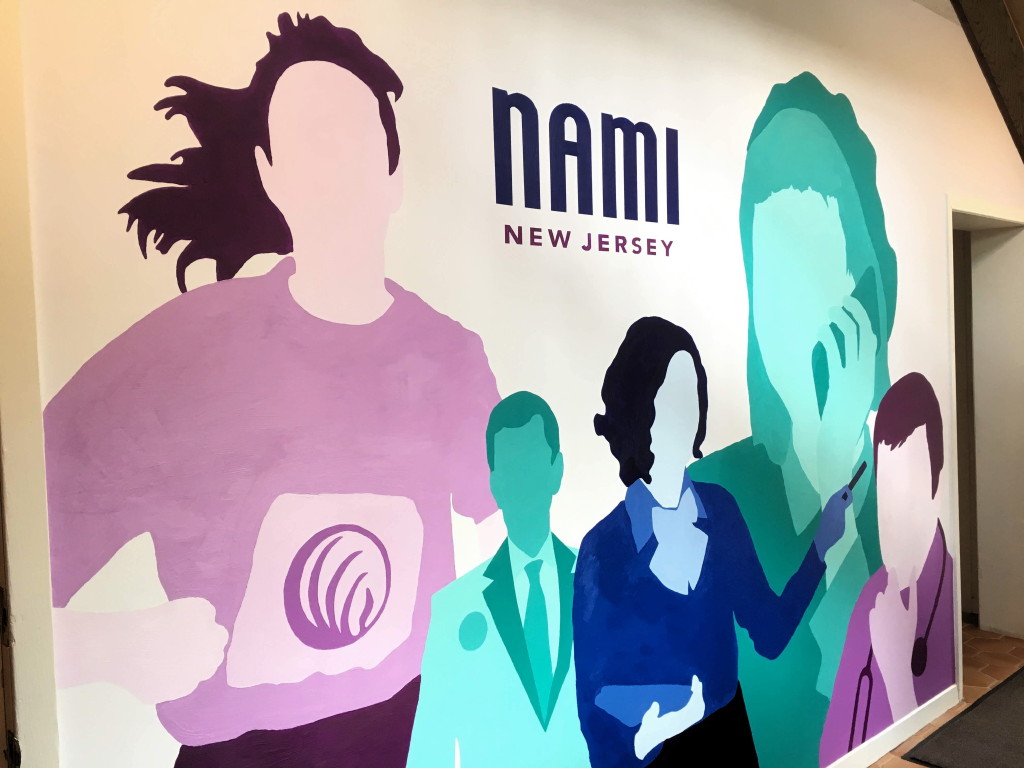As the COVID-19 crisis continues, being in public increases the risk of contracting the virus, but then staying at home in quarantine causes issues such as stress, anxiety, depression and feelings of isolation to arise.
African Americans, like many minority communities, are likely to experience socioeconomic disparities such as exclusion from health, educational, social and economic resources, which may contribute to worse mental health outcomes.
“African Americans do have a higher incidence of underlying health conditions such as hypertension, diabetes and heart disease. Over 40% of African Americans have high blood pressure, among the highest rates in the world, according to the American Heart Association. By comparison, about a third of white Americans have high blood pressure. Similarly, African Americans tend to have higher rates of diabetes,” said Lisa Powell, program coordinator for AACT-NOW, African American Community Together NOW.
This makes the group more susceptible to COVID-19 because they are more likely to be exposed to the virus, they experience underlying health conditions and they have less access to medical care, according to an article published in “Science News.”
“Millions of people of people in the U.S. are affected by mental illness each year and it is important to measure how common mental illness is so we can understand its physical, social and financial impact — and so we can show that no one is alone,” Powell said. “These numbers are also powerful tools for raising public awareness, stigma-busting and advocating for better health care: 1 in 5 U.S. adults experience mental illness, 1 in 25 U.S. adults experience serious serious mental illness, and 17% of youth (6-17 years) experience a mental health disorder.”
In the African American community, the effects of mental illness are not so much governed by any biological defect in DNA but rather the artificial, but very real, barriers to treatment that unfairly challenge their ability to manage the disease of mental illness as individuals and a community, Powell said.
“The legacy of slavery, health care inequities, myths and assumptions held by a highly racialized America about people of color continues to pose a major challenge in the group’s ability to mitigate the effects of the disease,” Powell said.
For example, the symptoms of bipolar disorder in Black America are not experienced differently than a White America, Powell said.
“But the manic/depressive episode [in whites] will most likely be of shorter duration than the black persons due to their increased access to health care, higher level treatment interventions and higher socioeconomic states, all of which influence duration, which leads to better outcomes,” Powell said. “In simple terms, it is not the disease of mental illness that has any more or less of a negative effect on African Americans over other demographics, it’s about having access to the tools that help to manage the symptoms that lead to better outcomes and recovery – recovery that is possible no matter how as human beings we are defined socially, economically or demographically.”
Therefore, AACT-NOW provides mental health support groups throughout New Jersey, and Family to Family classes for families of those with mental illness. Also available is the Young Adult Society, a social group for young adults ages 21-35 with mental health concerns.
“As one of the four NAMI [National Alliance on Mental Illness] New Jersey multicultural outreach programs, AACT-NOW is here for families who are affected by mental illness. NAMI-NJ offers free referral service and help for families in navigating the mental health system. During the pandemic, AACT-NOW offers free online support groups for families affected by mental illness, phone support/referral, and virtual social support for young adults with lived experience of mental health issues. NAMI NJ’s webinar series and online signature program presentations are also freely available for all communities across the state and beyond.”
Aside from protecting physical and mental health, AACT-NOW also works on eliminating the stigma surrounding mental illness in the African American community.
“For some, it feels that there is more of a stigma in the African American community because society discriminates against African Americans, so any other issues are magnified. Different reasons prevent African Americans from seeking treatment and receiving quality care. In the African American community, many people misunderstand what a mental health condition is and don’t talk about this topic. This lack of knowledge leads many to believe that a mental health condition is a personal weakness or some sort of punishment from God. African Americans may be reluctant to discuss mental health issues and seek treatment because of the shame and stigma associated with such conditions,” Powell said.
“In the African American community, family, community and spiritual beliefs tend to be great sources of strength and support. Most African Americans rely on faith, family and social communities for emotional support rather than turning to health care professionals, even though medical or therapeutic treatment may be necessary. Faith and spirituality can help in the recovery process but should not be the only option you pursue. If spirituality is an important part of one’s life, spiritual practices can be a strong part of a treatment plan, spiritual leaders and faith communities can provide support and reduce isolation. Relying on family, community and faith for support is important, but seeking professional help is imperative.
“This can be combated by showing compassion and understanding. Contacting others, being empathetic and lending an ear is needed now more than ever,” Powell said.
For more information and resources visit, www.naminj.org/covid19.

